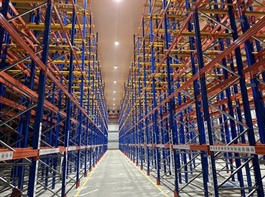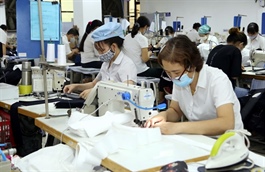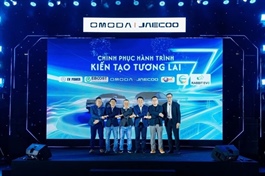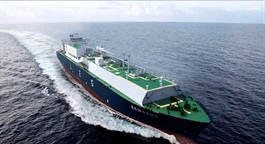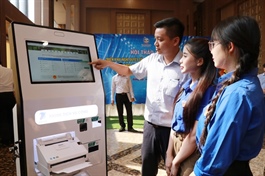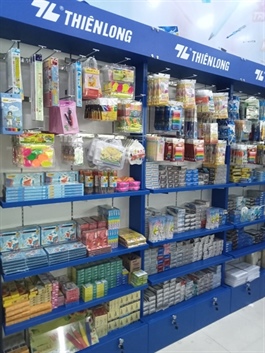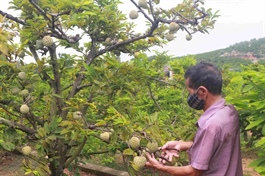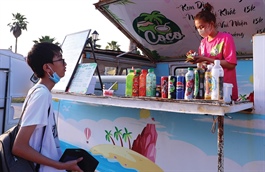Hydropower enterprises face weather-related challenges in 2025
Hydropower enterprises face weather-related challenges in 2025
In 2024, the transition from El Niño to La Niña brought increased rainfall, allowing hydropower plants to contribute substantially to the national grid.
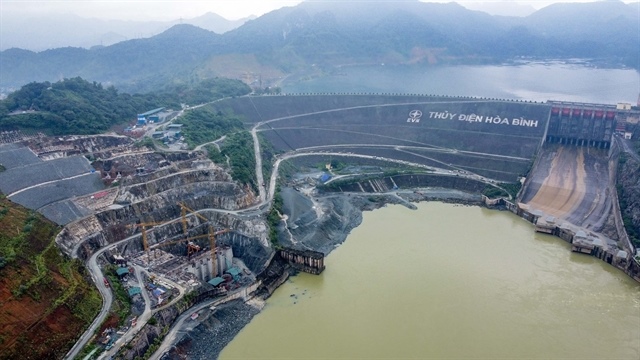
A Hòa Bình power plant in Hòa Bình Province. — VNA/VNS Photo |
Given the unfavourable weather conditions affecting the production and operational capabilities of power plants, many hydropower companies have adopted a relatively cautious approach to setting their business targets for 2025.
In 2024, Việt Nam's hydropower sector benefitted significantly from favourable climatic conditions.
The transition from El Niño to La Niña brought increased rainfall, allowing hydropower plants to contribute substantially to the national grid.
From June 2024 onwards, Vietnam Electricity (EVN) ramped up hydropower generation to meet the country's electricity demand. In the first two months of 2025 alone, hydropower production reached 9.29 billion kWh, accounting for 20.6 per cent of the total system's output.
However, projections for later this year suggest a return to neutral ENSO conditions, indicating that weather patterns may revert to historical averages. This shift raises concerns about potential temperature increases and reduced precipitation, which could adversely affect hydropower generation.
EVN has emphasised the importance of optimising power sources and maintaining reservoir levels to ensure adequate capacity during the dry season. As a result, hydropower companies are adopting a cautious approach in setting their business targets for 2025.
The hydropower industry has historically been a cost-effective energy source. Production costs for hydropower typically range between VNĐ400-600 per kWh (US$0.016-$0.023 per kWh), significantly lower than the VNĐ1,100-1,300 per kWh of coal-fired power plants, according to Việt Dragon Securities Corporation.
This cost advantage has made hydropower a preferred choice for energy generation. However, recent regulatory changes have introduced challenges.
Last year, EVN adjusted the alpha coefficient, a ratio representing contracted output to actual generation, to 98 per cent, the highest since the competitive electricity market's inception.
This adjustment limited hydropower plants' flexibility to capitalise on peak market prices, thereby reducing their operational efficiency.
For instance, Thác Bà Hydropower JSC reported that the elevated alpha coefficient restricted its participation in the competitive electricity market. In April 2024, the company had to refund about VNĐ27 billion to EVN due to reduced generation, as EVN's dispatching decisions led to lower-than-allocated production.
Similarly, Vĩnh Sơn - Sông Hinh Hydropower JSC noted that the 98 per cent alpha coefficient and monthly operational planning adversely impacted its market-based revenue streams.
Given these uncertainties, several hydropower companies have set conservative targets for 2025.
Thác Bà Hydropower aims for revenue of VNĐ505 billion and a profit after tax of VNĐ198 billion, down 7 per cent and 13.5 per cent, respectively, from the previous year. This conservative outlook considers potential hydrological challenges and the stringent alpha coefficient.
Hủa Na Hydropower JSC set a total revenue goal of VNĐ828.7 billion, while its target for profit after tax is VNĐ185.5 billion.
Despite these challenges, there are reasons for cautious optimism.
SSI Research forecasts a 10.5 per cent increase in national electricity consumption for 2025, based on an anticipated GDP growth of 7 per cent and an electricity-to-GDP elasticity ratio of 1.5.
Given that hydropower remains a cost-effective energy source, EVN is expected to continue prioritising it. Nonetheless, companies must navigate the dual challenges of unpredictable weather patterns and regulatory constraints.
In response to these challenges, hydropower enterprises are exploring strategies to enhance operational efficiency. This includes optimising reservoir management, investing in advanced forecasting technologies and advocating for regulatory adjustments to provide greater flexibility in electricity markets.
By adopting these measures, companies aim to mitigate risks and capitalise on opportunities within the evolving energy landscape.
- 08:09 25/03/2025



